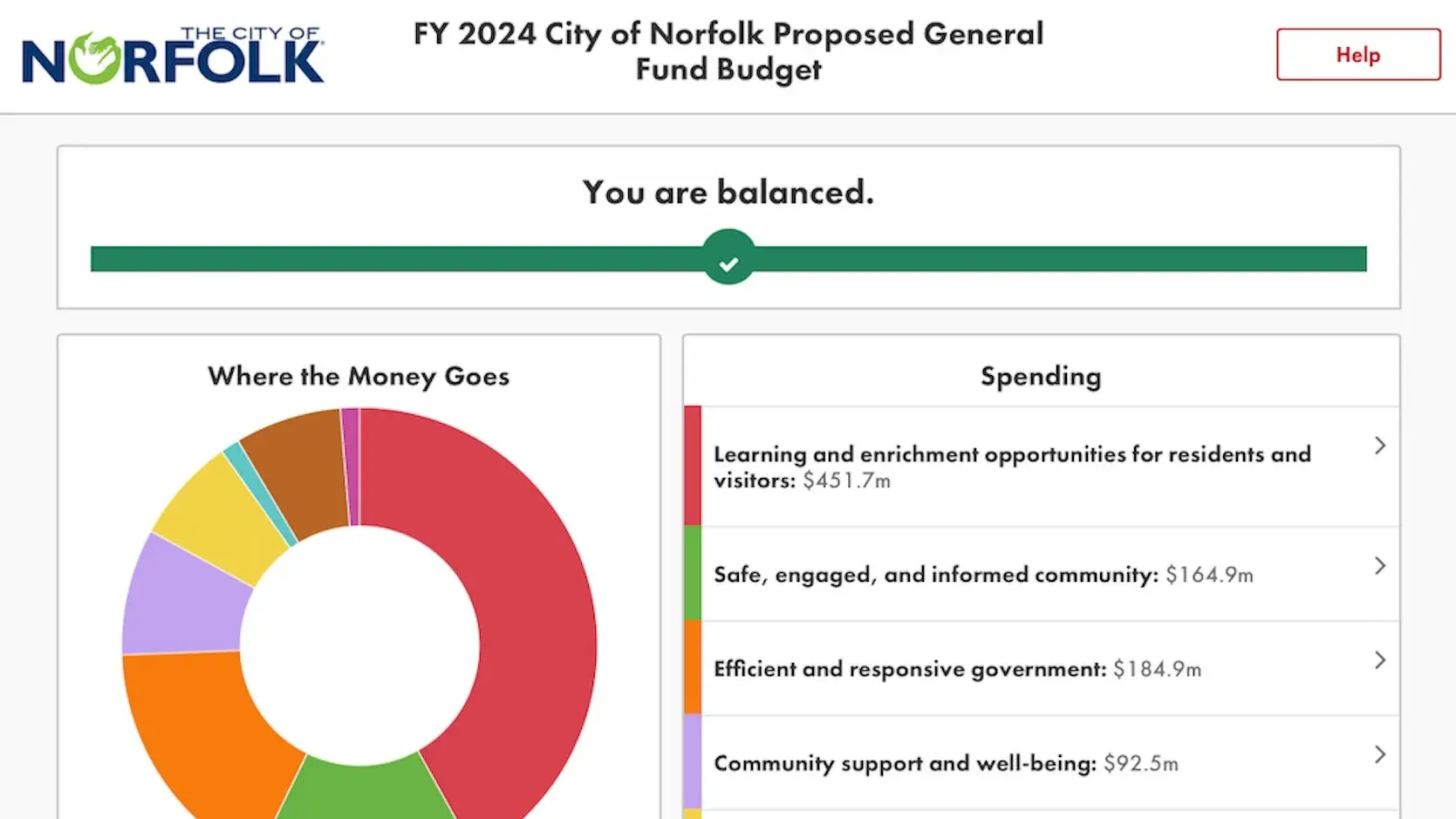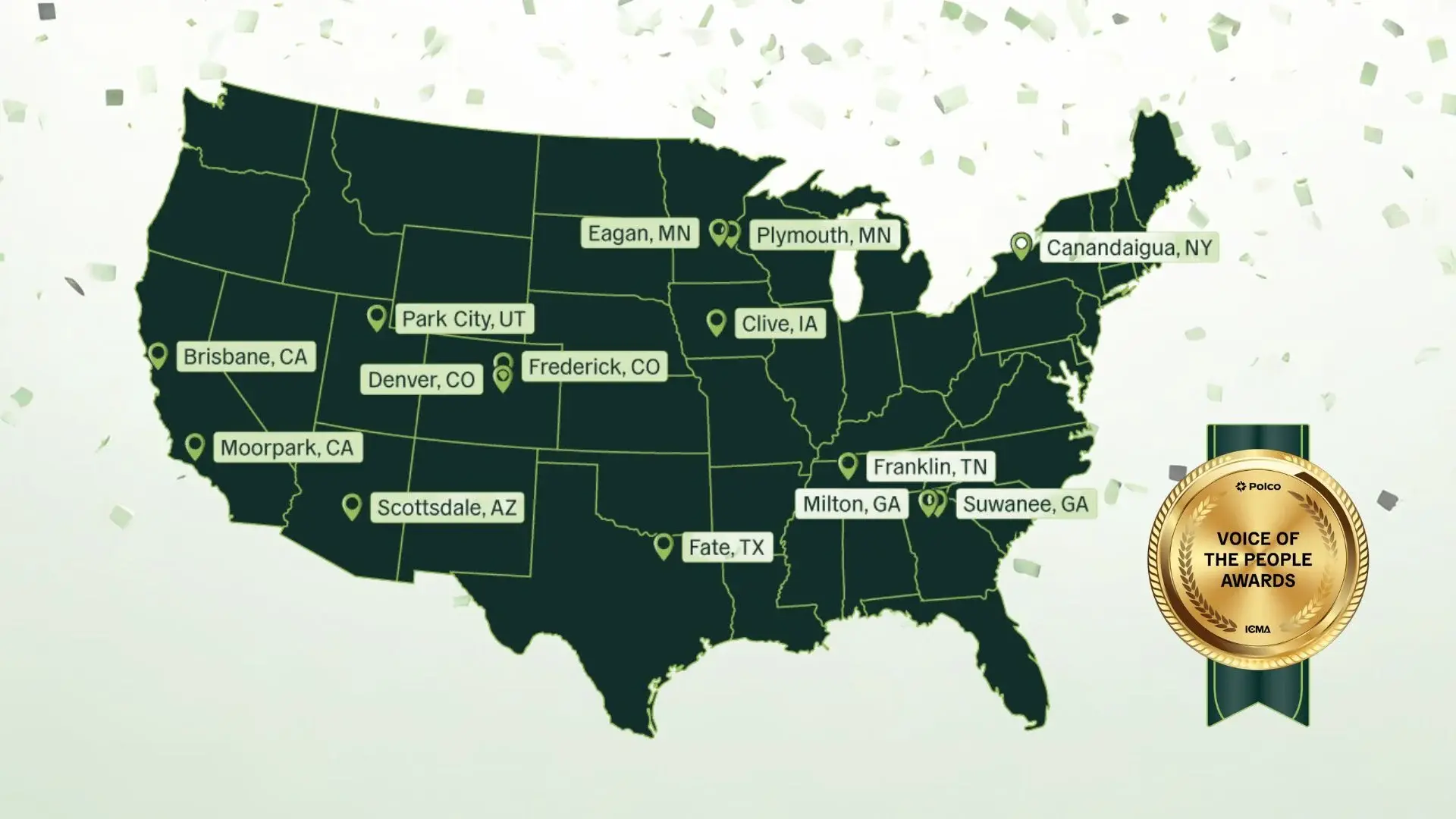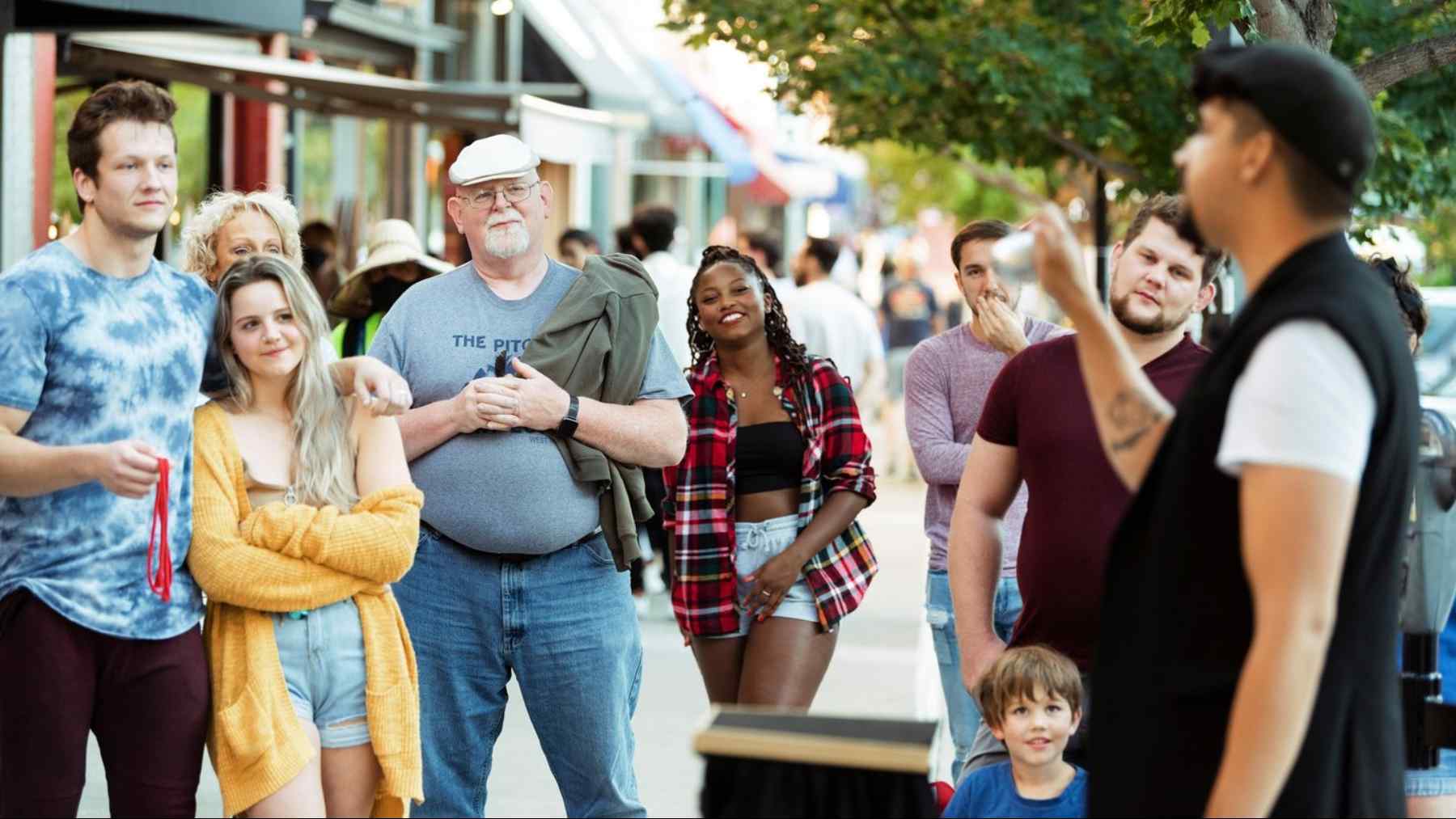How Local Government Leaders Can Overcome Polarization
By Polco on December 8, 2023

Government thought leaders share their experiences on how to overcome polarization.
Most local government leaders today say polarization negatively impacts their work, according to Polco research. When it comes to decisions for an entire community, polarization just doesn't work.
With pervasive misinformation fueling polarization, local governments must engage their residents to rebuild trust and overcome the destruction extremism brings.
Immediate solutions are critical. Polarization affects local government retention rates, disrupts projects and initiatives, and distorts leaders' perceptions of what residents truly think about community issues.
In a recent webinar hosted by Polco and the National League of Cities (NLC), local government thought leaders discussed how polarization impacts the public sector. Their real-world experiences serve to highlight solutions to overcome polarization.

Polarization Creates a Distorted View of How Most Americans Really Feel
Local government leaders need quality input about resident perspectives and priorities to make the best-informed decisions. However, not all engagement methods deliver insights that accurately reflect the entire community.
Polco research shows that less than 20% of residents have ever attended a public meeting within their lifetime.
 "If we want to see what our residents are thinking about the issues and the decisions that we're making, we're not really getting a good picture in our public meetings, and we're not getting an accurate picture online either," said Angelica Wedell, Communications Director for Polco.
"If we want to see what our residents are thinking about the issues and the decisions that we're making, we're not really getting a good picture in our public meetings, and we're not getting an accurate picture online either," said Angelica Wedell, Communications Director for Polco.
"The vocal minority expresses the most extreme viewpoints," Wedell continued.
She says lowering barriers to community engagement brings balance back into civic discourse.
"We have found in more than 20 years of research that when we create easy opportunities for residents to engage, the majority of our residents are somewhere within the middle," she said.
Furthermore, 70% of government officials say political division negatively impacts their organization. This finding comes from a recent Polco survey in partnership with Strategic Government Resources (SGR) that investigates polarization at the community level.
Respondents said this division diminishes resident trust, lowers public participation, and increases animosity within the community. In some cases, highly partisan officials were elected to office.
Notably, 85% of respondents said local governments should play a role in combating polarization. They point to resident engagement as the most effective solution.
 "The resident voice really helps increase transparency, promotes accountability, and really provides opportunities for residents to be engaged," said Michelle Kobayashi, Principal Research Strategist at Polco, who led the polarization study.
"The resident voice really helps increase transparency, promotes accountability, and really provides opportunities for residents to be engaged," said Michelle Kobayashi, Principal Research Strategist at Polco, who led the polarization study.
"When done right, increasing the resident voice or using it in local government decision-making really helps decrease polarization."
There are a few key ingredients to consider to engage your community and rebuild trust.
Key Components of Quality Community Engagement to Overcome Polarization

1. Increase Representation
People motivated to participate in three-hour council meetings on a weeknight are typically more passionate about an issue than most residents. "People who show up are the people with an ax to grind – people who are very emotionally heightened," Kobayashi said.
Kobayashi says she's dedicated her life to survey research because it is a reliable way to attract more people to share their feedback. More people will participate in a 15-minute survey than a long, late-night, in-person meeting. Surveys are proven to reach more middle-ground voices.
 "Every decision that is sustainable for the long-term good is a decision that is made in the middle. Great decisions, sustainable decisions, never come out of the fringe," said Ron Holifield, CEO of Strategic Government Resources.
"Every decision that is sustainable for the long-term good is a decision that is made in the middle. Great decisions, sustainable decisions, never come out of the fringe," said Ron Holifield, CEO of Strategic Government Resources.
"If we really want to be thinking about the future of our communities, we've got to be thinking about how we empower better decision-making in the middle of the spectrum."

2. Focus on Results
One effective way to get polar sides to agree is to focus on results rather than actions.
"If you start a conversation on what areas of the community we should put in multifamily housing, you're going to end up with polarization," Kobayashi said.
In this case, she says it's better to start the conversation around the importance of affordable housing for workforce readiness, diversity, equity, and inclusion, for example.
"Having people agree on the needs upfront, and also being able to track how you do with data so people don't spend so much time arguing ... is a really, really good way to get people to agree," she said.

3. Promote Education
With so much misinformation, education is essential. Some local governments have launched citizen academies to teach residents how local governments work and nurture more understanding.
Local governments that show residents they are accessible, reliable sources of information cultivate trust. This was apparent during the Covid pandemic when many people looked to their local governments for information. Polco research shows there was a spike in trust in 2020.
 Jessica VanderKolk, Communications Manager for the City of Battle Creek, Michigan, says community input data informs City outreach decisions and helps to quelch rumors.
Jessica VanderKolk, Communications Manager for the City of Battle Creek, Michigan, says community input data informs City outreach decisions and helps to quelch rumors.
"We've used The National Community Survey (The NCS) with Polco since 2015. And I like to ask a question about people's sources of information from our City," Vanderkolk said.
"I'll list all of our channels that we're using to share information and ask people to tell us if it is a major source, a minor source, or not a source at all for information. And that really helps us in communications to tailor our messaging strategies around how we can best reach everyone in our community."
The survey reports that while many residents prefer traditional mailed newsletters, a significant portion look for City news from social media.
For instance, one person posted on a City Facebook group that someone released poisonous snakes at a local park. Knowing where the rumor had started and where many residents were seeking information, the City used social media to explain that this was untrue and that the park was safe.
"Using [The NCS] really helps us try to meet those needs the best we can so we can stay that reliable source," VanderKolk summarized.
She says Battle Creek also made their City Commission more accessible. The City produces videos before and after every commission meeting to describe the agenda in plain language.

4. Encourage Collaboration
Governments are also using new tools to put residents into their decision-makers' shoes.
 Eric Peterson is the Assistant City Manager at the City of Webster Groves, Missouri. The City underwent budget cuts, a polarizing event among different departments.
Eric Peterson is the Assistant City Manager at the City of Webster Groves, Missouri. The City underwent budget cuts, a polarizing event among different departments.
"We've all had the three-minute speeches from people who have one item in the budget that they want to argue about, and it's often, at times, a polarizing moment," Peterson said.
They used the Budget Simulation designed by Balancing Act from Polco. This tool lets residents try their hand at balancing an actual city budget. In addition to educating residents on what's possible and the trade-offs involved in budgeting, it fosters a sense of understanding.
"Balancing Act gave us the power, as we talked about this structural deficit, to really give people the same choices that the elected officials have on the dais when we're doing the budget," he said.
"If you want to spend a million dollars, but we only have $500,000, what are you going to either raise in revenue or cut on the spending side to make it balanced?"
In this way, Peterson explains, the simulation adds a layer of empathy and allows for collaboration.
And in the end, empowering collaboration is the key for local government leaders to overcome polarization.
Tools To Help Your Local Government Overcome Polarization
Overcoming polarization requires active engagement, effective communication, reliable data to back decisions, and a commitment to inclusivity and transparency. Polco provides local government leaders with tools proven to represent community opinions and inform strategic plans. You, too, can engage stakeholders and make confident, data-driven decisions.
Request a Demo
Learn how Polco delivers accurate and reliable community engagement with representative survey input, response validation, and data analytics government leaders can count on.
Related Articles
Popular posts
Sign-up for Updates
You May Also Like
These Related Stories

Norfolk’s Budget Engagement Increases Resident Understanding of the “Delicate Reality of Allocating Funding”

The 2023 Voice of the People Awards Winners Revealed

